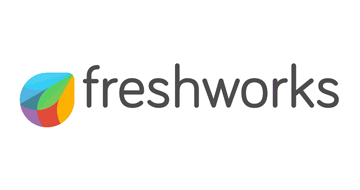
| Starting Price | $15 per month |
|---|---|
| Pricing Model | Subscriber based |
| Free Trial | Yes |
| Free Version | Yes |
Improving customer engagement is critical to building strong relationships and growing the business. Customer engagement software offers a range of capabilities to streamline communications, personalize interactions, and create exceptional customer experiences. Fine the best value solutions for your needs at SaasGenius.
Discover our hand-picked selection of the best customer engagement software on the market. Discover the software that fits your business needs and offers the best value in terms of features, functionality and user satisfaction.

| Starting Price | $15 per month |
|---|---|
| Pricing Model | Subscriber based |
| Free Trial | Yes |
| Free Version | Yes |

| Starting Price | Contact for price |
|---|---|
| Pricing Model | Subscriber based |
| Free Trial | No |
| Free Version | No |
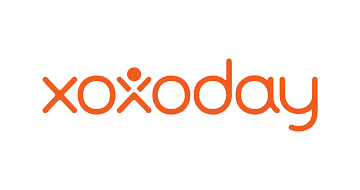
| Starting price | $299/mo |
|---|---|
| Pricing Model | Subscriber based |
| Free Trial | Yes |
| Free Version | Yes |
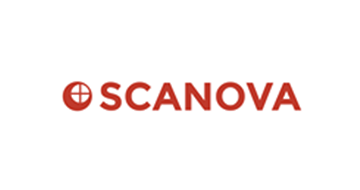
| Starting Price | $ 15/mo |
|---|---|
| Pricing Model | Subscriber based, per QR code |
| Free Trial | Yes |
| Free Version | No |
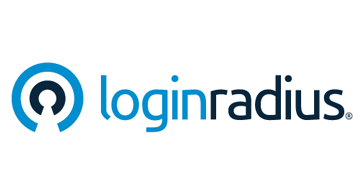
| Starting Price | Contact for price |
|---|---|
| Pricing Model | Subscriber based |
| Free Trial | Yes |
| Free Version | Yes |
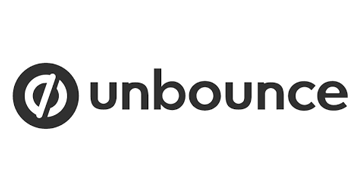
| Starting Price | $90.00 / Month |
|---|---|
| Pricing Model | Subscriber based |
| Free Trial | Yes |
| Free Version | No |
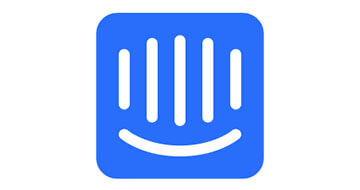
| Starting price | $67/mo |
|---|---|
| Pricing model | Per Seat |
| Free Trial | 14-days |
| Free Version | No |

| Starting price | $189/mo |
|---|---|
| Pricing model | Flat-rate and quotation based |
| Free Trial | No |
| Free Version | No |
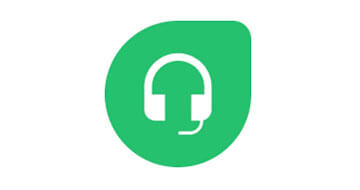
| Starting price | $18/mo |
|---|---|
| Pricing model | Per User |
| Free Trial | 21-day |
| Free Version | Yes |
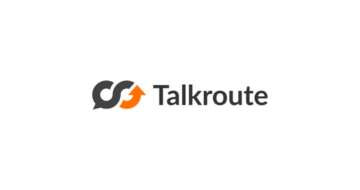
| Starting price | $19/mo |
|---|---|
| Free trial | Yes (7 days) |
| Free version | No |
Customer Engagement Software helps companies track, acquire, and manage customer relationships by personalizing the customer journey.
This software is the solution businesses need to improve their customer service and maintain the highest satisfaction levels. This tool lets businesses track, analyze, and manage their customer journey, offering a personalized customer experience. In a broader sense, it helps businesses generate sales and grow in revenue through customer loyalty and strategic marketing.
A customer engagement platform (CEP) is software that allows you to interact with your customers at any point of contact they may have in the company. It has a library of related information and tracks your audience as they progress from strangers to prospects, customers to promoters. Moreover, it assists organizations in acquiring, engaging, and serving customers across all communication channels through a single solution.
A CEP performs various tasks in the customer journey and plays a significant role in maintaining and retaining the company’s customers.
A customer engagement platform refers to the software utilized to track and analyze consumer activity and engage with them. Customer engagement systems assist companies in better engaging with users, resulting in improved client success and satisfaction. This results in lower turnover and higher overall growth.
They also aid in the reduction of customer support demands by stationing self-service customer support via resource centers, engaging walkthroughs, tutorials, and onboarding routines.
Finally, as a result of happy consumers, increased customer experience through CEP offers businesses a competitive edge over their competitors.
To select the ideal software, you must first understand the consumer journey and the levels of customer-product contact; you must also define the consumer engagement model and be aware of various sorts of beneficial interactions for your consumers.
While CRM software and customer engagement platforms share some overlapping capabilities, they serve distinct purposes in your technology stack.
CRM software primarily focuses on storing and organizing customer data, managing sales pipelines, and tracking interactions. It’s data-oriented and designed to help teams manage relationships with both prospects and existing customers.
Customer engagement platforms are action-oriented, designed to facilitate real-time interactions and drive specific customer behaviors through personalized messaging across multiple channels. They focus on deepening relationships through active communication rather than just storing information.
Many businesses achieve optimal results by integrating both systems. Your CRM can feed customer data into your engagement platform, enabling more personalized and timely interactions based on comprehensive customer profiles.
Software with a specific set of capabilities can assist your clients in making progress toward customer retention and business growth targets they’ve established.
Personalized, relevant offerings have the potential to attract attention. Your clients will be able to categorize their lists using the most beneficial software solutions. Advanced segmentation allows you to group customers based on behavior, demographics, purchase history, engagement levels, and lifecycle stage.
Consumer engagement platforms enable merchants to contact customers in the way they desire, for example via email, SMS, in-app, or social media. The best platforms unify all communication channels into a single dashboard, ensuring consistent messaging and preventing missed interactions regardless of where customers reach out.
Without automation, maintaining a customer engagement plan would be extremely time-consuming. Merchants can use the software to set up rules so that when specific conditions are satisfied, an offer or message is automatically sent. Marketing automation capabilities should include triggered campaigns, drip sequences, abandoned cart recovery, and behavioral targeting.
Certain software suites enable merchants to create mobile apps. Others may feature integrations with third-party apps. Mobile engagement is critical as customers increasingly interact with brands through smartphones and tablets.
The best software has a centralized dashboard, ensuring clients can administer their marketing messages, customer segmentation, reward program, and other aspects of their customer experience strategy from a single screen. This unified view eliminates the need to switch between multiple tools and provides a holistic understanding of customer interactions.
Data-driven decision making requires robust analytics. Look for platforms that provide real-time insights into customer behavior, campaign performance, engagement metrics, and conversion rates. Marketing analytics integration helps you understand what’s working and optimize your strategies accordingly.
Modern customer engagement platforms leverage artificial intelligence to analyze customer behavior patterns, predict next actions, and automatically personalize content for each individual. AI capabilities can include predictive analytics, sentiment analysis, chatbot functionality, and intelligent content recommendations.
Your engagement platform should seamlessly connect with your existing technology stack, including your CRM, email management software, customer service tools, and analytics platforms. Strong integration capabilities eliminate data silos and create a unified customer experience.
| Feature Category | Basic Platforms | Mid-Tier Platforms | Enterprise Platforms |
| Communication Channels | Email, basic chat | Email, SMS, social media, live chat | Full omnichannel including WhatsApp, push notifications, in-app messaging |
| Automation | Simple email sequences | Multi-channel workflows, behavioral triggers | Advanced AI-driven automation, predictive journeys |
| Segmentation | Basic demographic filters | Behavioral and demographic segmentation | AI-powered micro-segmentation, predictive modeling |
| Analytics | Basic reporting | Custom dashboards, conversion tracking | Real-time analytics, predictive insights, attribution modeling |
| Integration Options | 10-50 integrations | 50-200 integrations | 200+ integrations, custom API access |
| AI Capabilities | Limited or none | Basic AI features, chatbots | Advanced AI, machine learning, natural language processing |
| Personalization | Template-based | Dynamic content blocks | 1:1 personalization at scale, predictive recommendations |
| Support | Email support | Email + chat support | Dedicated account manager, 24/7 support |
Here is a list of some benefits companies can expect from using customer engagement platforms:
These software solutions allow employees to solve customer complaints and queries about their products over the call and via live chat, social networking sites, and email. You can establish a more coherent message across all platforms through omnichannel customer engagement, offering enhanced customer support whenever and wherever it is beneficial for them.
Engagement is crucial in nurturing customer bases that are loyal to your brand. By offering personalized customer interactions, one can strengthen customer loyalty and retain the customer’s trust. Loyal customers not only return for repeat purchases but also become brand advocates who refer new customers.
Engaging customers at the correct time when they are searching for it, using modern digital engagement tools such as live chat, co-browsing, and video chat, results in a superior conversational support experience. Real-time engagement shows customers you value their time and are committed to solving their problems immediately.
Customers are more inclined to purchase from firms if you show real interest in them. Instead of simply providing a product, you become the comprehensive answer to their problem. A successful customer engagement platform enables you to grow customer care to provide a great customer service experience without proportionally increasing your support team size.
Using AI chatbots allows firms to automate lead qualifying by posing pre-programmed queries to website users. It aids in the immediate closure of deals, increasing the velocity of the sales funnel. This automation frees your sales team to focus on high-value conversations while the platform handles initial qualification.
The software enables you and your staff to access the information from any location using a web browser or mobile device. It’s becoming increasingly crucial as your staff base could include remote workers, contractors, and freelancers. Cloud-based platforms ensure your team can engage with customers regardless of their physical location.
Users and teams can collaborate with customer engagement solutions because most provide cloud-based platforms. Centralized accessibility to official information, tools, and other features enable teams to collaborate and brings them closer to achieving a common goal.
Improving team collaboration is extremely advantageous, especially since most firms have interlinked teams, such as sales and marketing, communications, and customer support. This will aid in having better working relationships.
Customer engagement platforms provide comprehensive analytics that reveal patterns in customer behavior, campaign effectiveness, and engagement trends. These insights enable you to refine your strategies continuously, allocate resources more effectively, and demonstrate ROI to stakeholders.
By identifying at-risk customers through engagement metrics and behavioral signals, you can proactively reach out with targeted retention campaigns. Early intervention based on data-driven insights significantly reduces churn rates and increases customer lifetime value.
Selecting the ideal customer engagement software requires careful evaluation of your specific business needs and objectives. Consider these critical factors:
Start by identifying your most pressing engagement challenges. Are you looking to improve email campaign performance, provide better customer support, increase social media engagement, or create personalized customer journeys? Different platforms excel in different areas.
Evaluate how the platform will integrate with your existing tools. If you’re already using a CRM system, marketing automation software, or analytics platforms, ensure the engagement platform offers robust integration capabilities.
Consider your growth trajectory. Will the platform accommodate your expanding customer base, additional team members, and increasing communication volume? Look for solutions that offer flexible pricing tiers and can scale without requiring a complete platform migration.
Identify which communication channels are most important for reaching your customers. If your audience primarily engages through email and SMS, a platform excelling in those channels may be sufficient. If you need comprehensive social media management and in-app messaging, look for more extensive omnichannel capabilities.
Assess your team’s technical capabilities. Some platforms require minimal technical knowledge and offer intuitive drag-and-drop interfaces, while others provide more advanced customization options that may require developer resources.
Establish a realistic budget that accounts for not just subscription costs but also implementation, training, and potential integration expenses. Calculate expected ROI based on improved conversion rates, reduced churn, and increased customer lifetime value.
Strong vendor support becomes crucial during implementation and ongoing usage. Look for platforms offering comprehensive documentation, training resources, responsive customer support, and an active user community.
Customer engagement platforms serve diverse industries, each with unique requirements and priorities:
SaaS businesses use customer engagement platforms to reduce churn, drive product adoption, facilitate onboarding, and identify upsell opportunities. These platforms help track user behavior within the application, trigger contextual in-app messages, and automate renewal campaigns. Integration with product analytics ensures engagement efforts align with actual usage patterns.
Online retailers leverage engagement platforms to recover abandoned carts, recommend products based on browsing history, send post-purchase follow-ups, and create loyalty programs. These platforms excel at behavioral targeting, using purchase patterns and website activity to deliver highly relevant promotions and content.
Banks, insurance companies, and fintech firms use engagement platforms to provide account notifications, educate customers about financial products, deliver personalized financial advice, and ensure regulatory compliance in communications. Security and data privacy become paramount considerations in this sector.
Healthcare organizations utilize engagement platforms for appointment reminders, patient education, telehealth follow-ups, and medication adherence programs. These platforms must comply with strict regulations and handle sensitive patient information securely.
Hotels, airlines, and travel agencies use engagement platforms to send booking confirmations, provide pre-arrival information, offer personalized recommendations, and solicit post-stay reviews. These platforms help create memorable experiences that encourage repeat bookings and positive word-of-mouth.
Educational institutions and e-learning platforms use engagement software to support student recruitment, facilitate course enrollment, provide learning resources, and maintain alumni relationships. These platforms help educators deliver personalized learning experiences and track student engagement.
SaasGenius rates the best customer engagement software based on a comprehensive evaluation process that includes analysis of user reviews, expert opinions and key features. Using our unique Genius Score, which ranges from 0 to 100, we provide objective evaluations. Our trusted recommendations will help you choose the right customer engagement software for your business. Check out our full rating methodology page for more information. Trust SaasGenius to find the best software for your customer engagement needs.
Customer engagement platforms are essential for all types of businesses. They are vital for small companies, big firms, enterprises, and SaaS-based companies.
Customer engagement platforms in SaaS companies help retain customers, mitigate the risk of customer churn, improve customer satisfaction, and cross and upsell. This enhances the overall customer experience by ensuring users extract maximum value from the product, reducing time-to-value, and identifying opportunities for account expansion.
Emphasizing customer engagement helps build a strong, loyal community for small businesses. It promotes the target market to engage with small businesses and allows the customers to share the experiences with their friends and family. This immediately eliminates the need to boost advertising expenses to reach new consumers. Small businesses particularly benefit from automation features that let them compete with larger companies without expanding their teams proportionally.
Here, the software allows marketers to organize and coordinate all client contact activities. Aside from improving customer experience, an effective customer engagement tool increases operational efficiency while decreasing corporate expenses. Large organizations benefit from advanced features like multi-brand management, sophisticated approval workflows, and enterprise-grade security.
Agencies managing multiple clients need platforms that support multi-account management, white-labeling capabilities, and robust reporting to demonstrate value to clients. Customer engagement platforms help agencies deliver consistent results across diverse client portfolios.
Business-to-business companies use engagement platforms to nurture longer sales cycles, coordinate between multiple decision-makers, deliver educational content, and maintain relationships post-sale. These platforms help B2B marketers stay top-of-mind throughout extended buying processes.
The cost of customer engagement software varies significantly based on features, scale, and vendor:
| Pricing Tier | Monthly Cost Range | Typical Features | Best For |
| Entry-Level | $20-$50 per month | Basic email campaigns, simple automation, limited contacts | Startups, solopreneurs, very small businesses |
| Small Business | $50-$300 per month | Multi-channel communication, moderate automation, standard integrations | Small to medium businesses with growing customer bases |
| Mid-Market | $300-$1,000 per month | Advanced automation, comprehensive analytics, priority support | Established businesses with complex engagement needs |
| Enterprise | $1,000-$5,000+ per month | Full omnichannel capabilities, AI features, dedicated support, custom integrations | Large organizations with extensive customer bases |
The price entirely depends on your company’s goals and requirements. Consider these factors when evaluating costs:
Number of Contacts: Most platforms price based on the size of your contact database or number of active users. Understand how pricing scales as your list grows.
Feature Requirements: Advanced capabilities like AI-powered personalization, predictive analytics, and extensive automation typically command premium pricing.
Communication Volume: Some vendors charge based on the number of emails sent, SMS messages delivered, or active monthly users.
Integration Needs: Custom integrations or access to premium APIs may incur additional costs.
Support Level: Enterprise support, dedicated account managers, and custom onboarding increase overall investment.
User Licenses: Consider how many team members need platform access and whether pricing is per-user or unlimited.
When evaluating ROI, consider these potential returns:
The customer engagement landscape continues to evolve rapidly. Understanding these trends helps you future-proof your technology investments:
Artificial intelligence is moving beyond basic personalization to create truly individualized experiences. Modern platforms use machine learning to analyze vast amounts of customer data, predict behavior, and automatically optimize messaging, timing, and channel selection for each individual.
Chatbots and conversational AI are becoming more sophisticated, enabling natural, helpful interactions that feel less robotic. These tools handle complex queries, guide customers through decision-making processes, and seamlessly hand off to human agents when needed.
With increasing privacy regulations and growing consumer awareness, successful engagement strategies prioritize transparency and consent. Platforms are building stronger data governance features and providing customers with greater control over their data and communication preferences.
Rather than waiting for customers to report problems, engagement platforms are using predictive analytics to identify potential issues before they escalate. This proactive approach prevents churn and demonstrates commitment to customer success.
Customer engagement is expanding beyond text to include video messages, interactive content, and augmented reality experiences. These immersive formats drive higher engagement rates and create more memorable interactions.
As voice assistants and smart devices proliferate, engagement platforms are incorporating voice capabilities and IoT integrations to reach customers through emerging channels.
Ready to transform your customer relationships? Follow these steps to get started:
Customer engagement software represents a strategic investment in building lasting customer relationships. The right platform helps you deliver personalized, timely, and relevant experiences that turn one-time buyers into loyal brand advocates. By carefully evaluating your needs, selecting appropriate solutions, and implementing thoughtfully, you’ll create a customer engagement strategy that drives sustainable business growth.